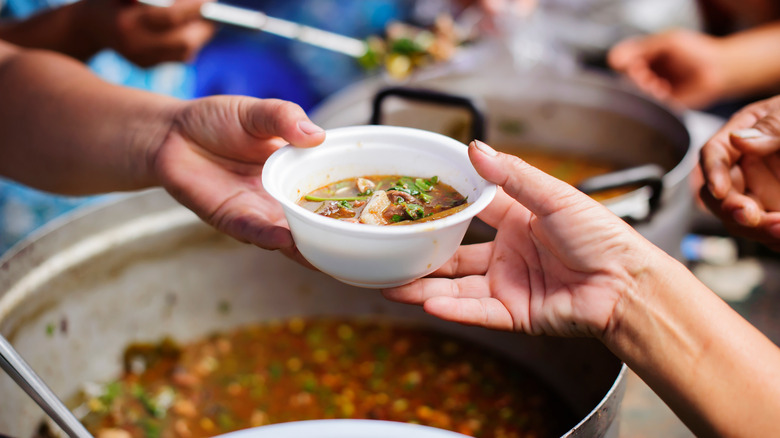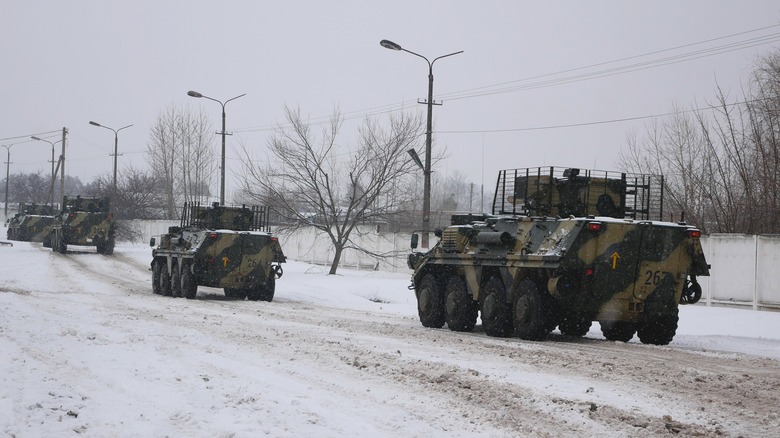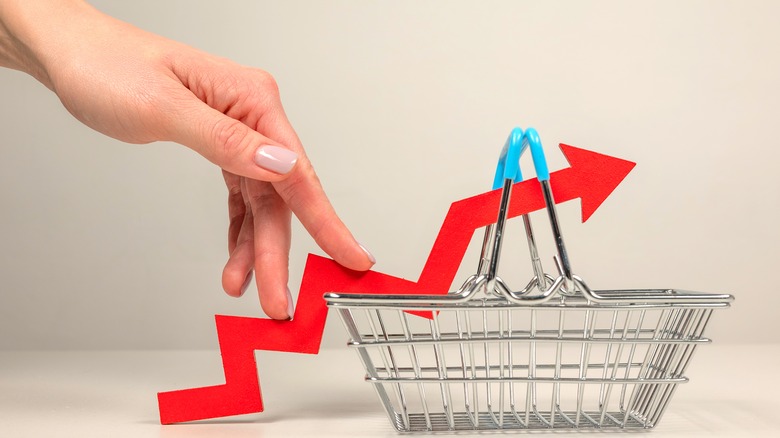USAID Just Made The Largest Ever Pledge To Combat Child Hunger
Samantha Power, Administrator of the United States Agency for International Development (USAID), announced on July 18 that the organization will be committing an additional $1.2 billion over its intended budget to combat the global food crisis, with efforts particularly focused on the Horn of Africa. According to USAID, the "surge" funding will go directly to aid work in Ethiopia, Somalia, and Kenya and has been approved in addition to the $507 million already contributed to food insecurity in the region.
According to Power, the funds will be spent on a combination of direct food donations to the impacted regions and assistance to local agriculture programs to improve long-term food production in Africa.
Additionally, a press release from USAID explains that the organization and several philanthropic partners will also be contributing $250 million to UNICEF to combat child wasting, a form of malnutrition in children under five, which the World Health Organization says is indicated by "a child who is too thin for his or her height and is the result of recent rapid weight loss or the failure to gain weight." While the condition can be fatal, it is treatable with proper nutrition. USAID's funding will be used by UNICEF to supply Ready-to-Use Therapeutic Food (RUTF), which are shelf-stable packets of nutritional food paste that are high in calories, vitamins, and nutrients and can be eaten directly without preparation to help children gain weight quickly (per UNICEF).
The contribution marks the largest donation of its kind to fight childhood malnutrition.
The impact of war
Power noted in her speech announcing USAID's efforts that the global food crisis has been growing worse in recent years and has been significantly worsened by "Vladimir Putin's unconscionable assault on Ukraine." According to USAID, 193 million people in 53 countries faced crisis-level hunger in 2021, and the war in Ukraine is expected to increase that number by 40 million. This is because, according to a 2019 report from BBC, Ukraine accountd for 10% of the world's wheat supply — including 40% of the wheat used by the UN's World Food Program (per Wilson Center)– as well as 16% of the world's corn, 10% of the world's barley, and 42% of the global sunflower oil supply, much of which went to countries in Africa, the Middle East, and Eastern Europe.
The war, as well as the heavy sanctions it has caused much of the world to place on Russia and Belarus — who are major suppliers of fertilizer as well as wheat (per The Washington Post) — have caused food prices to skyrocket world wide. "Putin's war has already driven millions of Ukrainians from lives of relative prosperity to destitution and dependence on humanitarian aid," Power said. "But through his actions, he is also waging a war on the world's poor, spiking food, fertilizer, and fuel prices while taking Ukrainian grain off the market."
Inflation drives food insecurity
As a result of the war, combined with pre-existing supply chain issues created by the COVID-19 pandemic and agricultural challenges created by climate change, areas that are already facing food insecurity are now at risk of severe famine.
Before the outbreak of the war, CNN reported that the UN World Food Program told Elon Musk it would need about $6.6 billion to effectively fight world hunger and avert a looming crisis.
Even in wealthy countries with stable food supplies, hunger is increasing. American food banks are seeing increases in traffic as inflation is making it harder for families to afford meals, resulting in No Kid Hungry reporting 12 million American children live in food insecure homes. Meanwhile, The Japan Times notes that food banks in Japan are struggling as increasing prices are causing a decrease in donations and an increase in demand, and The Guardian reports that a survey by the National Union of Students (NUS) revealed 11% of UK University students have become dependent on food banks.
The ongoing collection of crises reinforce the argument that Power made in her speech that if a global crisis is to be averted, countries of the world will need to come together to help those who are struggling.


